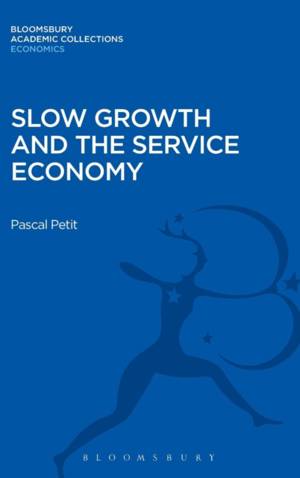
- Afhalen na 1 uur in een winkel met voorraad
- Gratis thuislevering in België vanaf € 30
- Ruim aanbod met 7 miljoen producten
- Afhalen na 1 uur in een winkel met voorraad
- Gratis thuislevering in België vanaf € 30
- Ruim aanbod met 7 miljoen producten
Zoeken
Omschrijving
The slow-down in economic growth and the rise in unemployment in the 1970s revived some of the uncertainties experienced by industrialized economies during the inter-war period. After more than a decade of stagnation, the period of sustained growth in the thirty years following the Second World War now seems increasingly to have been an exceptional phase in an overall development process still dominated by wide fluctuations in economic growth rates.
Slow Growth and the Service Economy examines what it means to live in a period of economic recession and analyses social patterns in response to the slowing down of financial and economic growth.
Slow Growth and the Service Economy examines what it means to live in a period of economic recession and analyses social patterns in response to the slowing down of financial and economic growth.
Specificaties
Betrokkenen
- Auteur(s):
- Uitgeverij:
Inhoud
- Aantal bladzijden:
- 256
- Taal:
- Engels
- Reeks:
Eigenschappen
- Productcode (EAN):
- 9781472506351
- Verschijningsdatum:
- 9/01/2014
- Uitvoering:
- Hardcover
- Formaat:
- Genaaid
- Afmetingen:
- 156 mm x 234 mm
- Gewicht:
- 530 g

Alleen bij Standaard Boekhandel
+ 644 punten op je klantenkaart van Standaard Boekhandel
Beoordelingen
We publiceren alleen reviews die voldoen aan de voorwaarden voor reviews. Bekijk onze voorwaarden voor reviews.







